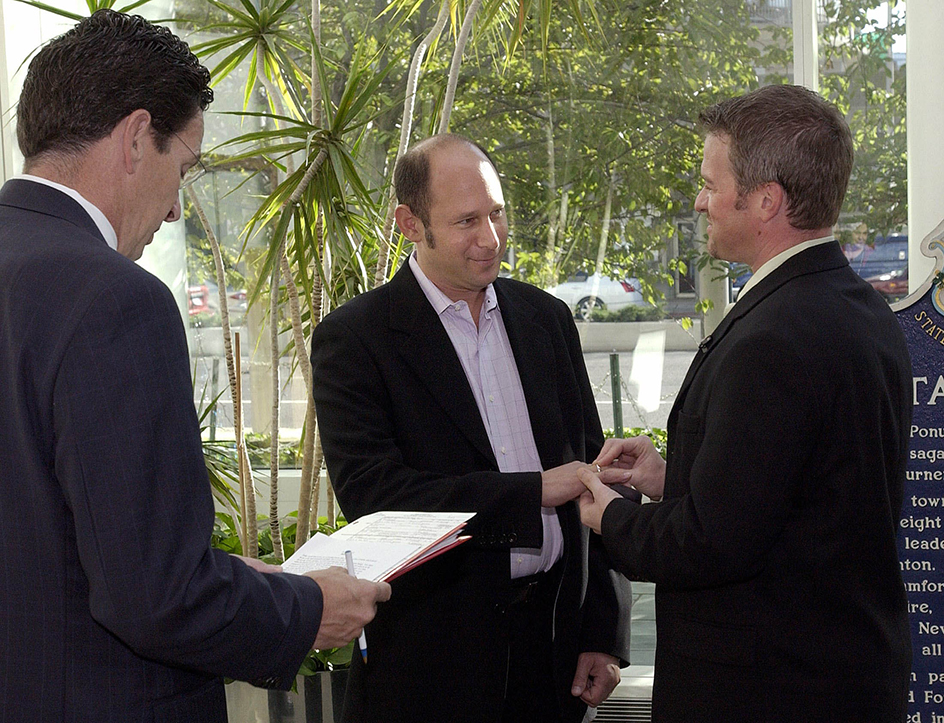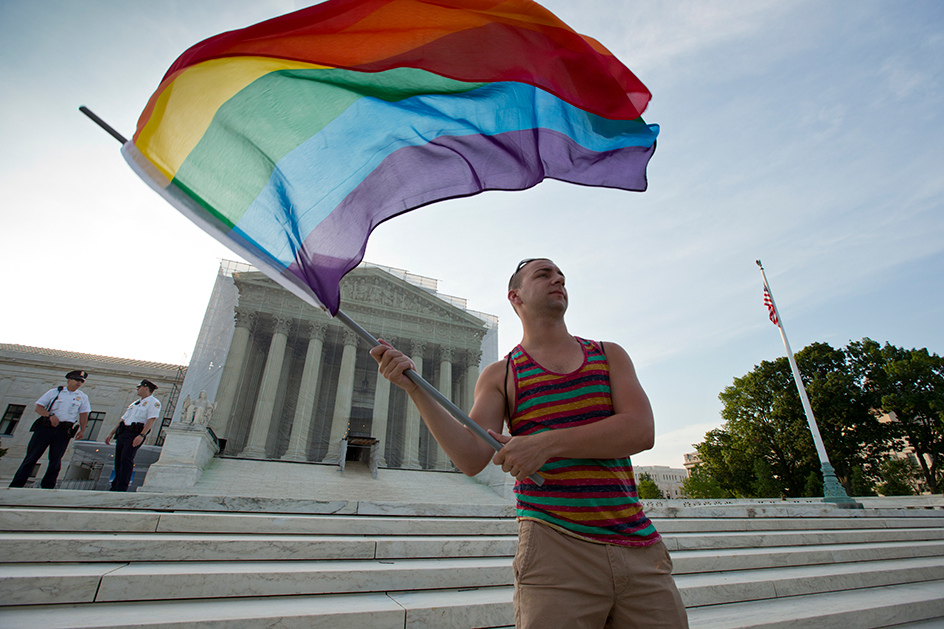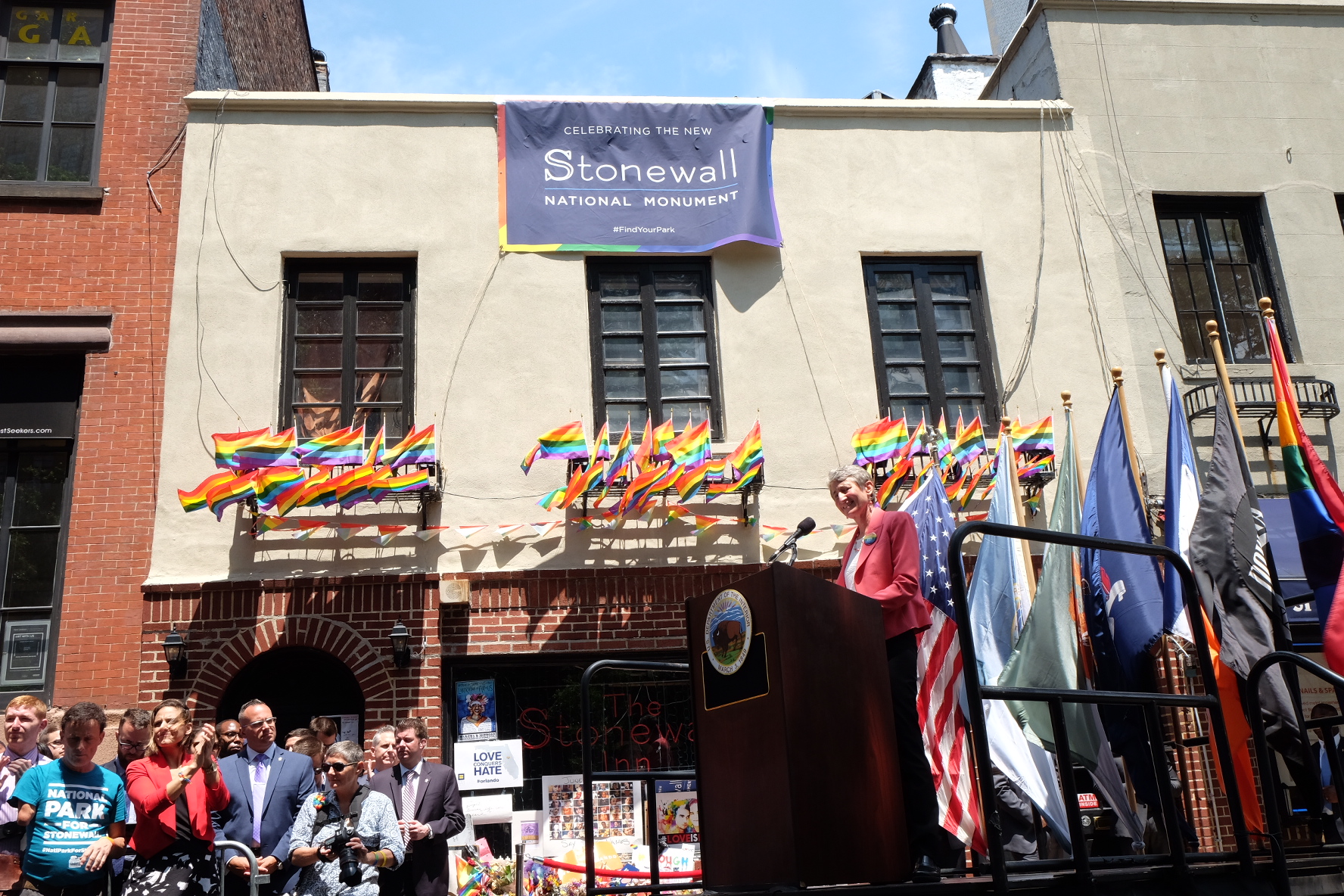Lesbian, gay, bisexual, transgender, and queer (LGBTQ) rights movement refers to efforts to protect the civil rights of and obtain equality for people who are gay (homosexual, or sexually attracted to people of the same sex); bisexual (attracted to people of more than one sex); transgender; or queer. Lesbian is a word for a gay woman. Transgender individuals do not identity with the gender assigned to them at birth. Queer was once an offensive term. Today, it is often used to broadly describe people who are not heterosexual and people who are not cisgender—that is, identifying with the gender they are assigned at birth. The Q in LGBTQ is sometimes said to stand for questioning, a term used to describe someone who is unsure of their gender or sexual orientation. The LGBTQ rights movement was often called the gay rights movement until the 1990’s. By the late 1990’s, activists in the United States had begun to use the abbreviation LGBT to refer to the community and the movement. The terms LGBT and LGBTQ are now commonly used in a number of countries, including some countries where English is not the primary language.

The LGBTQ rights movement seeks to educate society about LGBTQ issues and to make legal and social conditions better and safer for LGBTQ people to come out—that is, openly share or express their sexual orientation or gender identity. The movement includes activist organizations, artists, journalists, politicians, and religious groups. Organizations associated with the movement include GLAAD; the Human Rights Campaign; the International Lesbian, Gay, Bisexual, Trans and Intersex Association; and PFLAG.

Laws governing the behavior and self-expression of LGBTQ people vary throughout the world. A major goal of the LGBTQ rights movement is to eliminate laws that restrict or ban same-sex sexual relations. Most supporters of the movement believe that same-sex couples are entitled to the same rights as heterosexual couples, including the right to marry. LGBTQ rights groups also work to enact laws that protect LGBTQ individuals from discrimination, and to improve how they are presented in the media. Many LGBTQ advocates support laws that increase the penalties for hate crimes. Hate crimes target victims based on such characteristics as their gender expression, race, religion, or sexual orientation.
History of LGBTQ rights.
Beginning in the early 1900’s, gay communities formed in urban areas of many countries. During the 1950’s and 1960’s, the gay rights movement was small and consisted of local organizations or chapters. These early groups often called themselves homophile organizations. Many homophile organizations protested against police harassment, used lawsuits to defend gay rights, and became active in political parties.
Most historians trace the birth of the modern LGBTQ rights movement to a 1969 police raid on a New York City gay bar called the Stonewall Inn. Such raids were common then, but this raid met with strong resistance from the gay community. Bar patrons began a riot that lasted several days and helped mobilize gay communities in North America, as well as in Australia and Europe. After Stonewall, gay-rights activists created new organizations and developed many political strategies still used today. See Stonewall uprising. 
In 1986, the Supreme Court of the United States ruled that states could outlaw homosexual conduct. In 2003, however, the court reversed that decision when it ruled that a Texas ban on gay sexual relations was unconstitutional. Many other countries have struck down similar laws against homosexual conduct.
In 2004, Massachusetts became the first U.S. state to legalize same-sex marriage. In 2013, the U.S. Supreme Court ruled that same-sex spouses were entitled to receive the same federal benefits as heterosexual spouses. The Supreme Court ruled in 2015 that states could not ban same-sex marriage. Today, same-sex marriage is legal in every state and in the District of Columbia.
Most countries do not legally recognize same-sex marriages. For a list of countries where same-sex marriages are legal, see Same-sex marriage (table: Countries where same-sex marriages are legal). Some countries and U.S. states have allowed same-sex couples to enter into civil unions or domestic partnerships. These are legal relationships similar to marriage, but usually with fewer rights and responsibilities.
Since the late 1900’s, dozens of countries have created legal protections for LGBTQ people in the workplace. Such countries include Australia, Canada, Mexico, South Africa, South Korea, and the United Kingdom. In 2020, the U.S. Supreme Court ruled that the Civil Rights Act of 1964 prohibited workplace discrimination based on sexual orientation or gender identity. A number of countries, including Australia, Canada, the United Kingdom, and the United States, permit LGBTQ people to serve openly in their armed forces.
In the 2010’s, challenges faced by transgender individuals began to attract international attention. For example, parents of transgender children attending public schools have fought for their children’s rights to dress according to the children’s chosen gender identities and to use bathrooms and locker rooms matching those gender identities. Some governments have required that transgender children in public schools use the bathrooms and locker rooms that match the gender identities indicated on their birth certificates. Transgender adults have faced similar challenges in public places.
Opposition to LGBTQ rights.
Many opponents of LGBTQ rights argue that homosexual behavior is morally wrong or that transgender expression is unnatural. Some people are uncomfortable sharing bathrooms with transgender people or having their children share bathrooms with transgender people. In addition, many opponents question whether LGBTQ people have a legitimate claim to certain legal protections. Some believe that homosexuality and gender dysphoria—that is, a feeling that one was born with the wrong sex—are not characteristics present at birth, but rather personal choices. They claim that LGBTQ people want “special rights” rather than civil rights.
